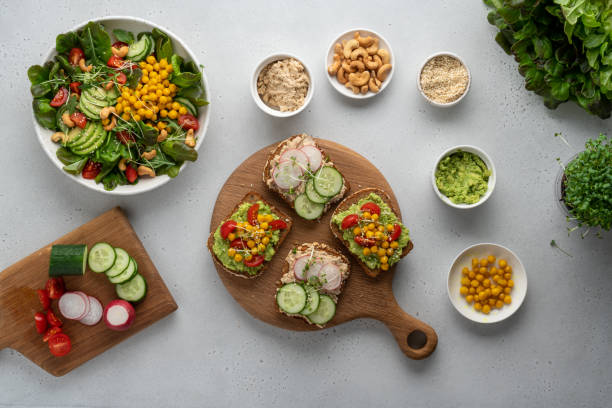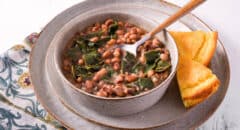
According to nutrition statistics, a growing number of Black Americans are choosing to cut down on how much meat they include in their diets.
If you’re thinking about making the same changes, knowing your plant-based protein options are important. That way you can still fulfill all your nutritional needs.
Why You Need to Keep Things Balanced
Regardless of your diet, the body needs the same kinds of nutrients to stay healthy.
Generally, you need certain quantities of protein, carbohydrates, vitamins, and minerals to function well. It’s ideal for these nutrients to come from what you eat.
If you’re going to make changes to your diet, it’s essential to make sure you’re still meeting all those needs.
In some cases, completely switching out animal-based proteins for plant-based ones might not cover everything you need so do your research.
You may also need to consume a higher quantity of vegetarian-friendly foods to get the same level of nutrients.
RELATED: 9 Benefits of A Plant-Based Diet
Ten Plant-based Proteins to Try Out
When you’re searching for plant-based options, these are a few of the possibilities:
- Chickpeas - These can be found canned or dried. They’re an excellent source of protein and fiber. Chickpeas can be used in salads, stews, and hummus.
- Lentils - These legumes provide a good source of protein, minerals, and fiber. Lentils can be used with rice as well as in stews, salads, and curry-based meals.
- Tofu - Made from soybeans, tofu absorbs flavor easily and can be used in just about any meal that usually has meat.
- Black beans - These beans are available in canned and dried forms. Either one can be combined with rice to complete a meal.
- Tempeh - This is also made from soybeans but since it’s fermented, it has a slightly nuttier taste. However, it absorbs flavor just as well and works great for a meat replacement.
- Edamame - Another form of soybeans, edamame can be added to salads or eaten as a snack.
- Peanuts - These nuts are not only protein-rich, but they’re full of heart-friendly fats as well. They make a great snack but you can add them to certain recipes too.
- Spirulina - This alga can give you a protein boost as well as iron and some B vitamins. Try it with smoothies, juices, salads, or as a snack.
- Chia seeds - This option has protein, fiber, and healthy fats. You can use them on toast or in yogurt. Many vegetarians also love making chia puddings.
- Kidney beans - These beans have a rich flavor that makes them great for meatless dishes like chillis and bean quesadillas.
Other Tips For Switching Out Animal-based Proteins
When you’re incorporating more plant-based proteins into your diet, experts recommend that you take things slowly.
Even if the aim is to make a positive change in your health, it will be easier to stick to your changes when you make one change at a time. As you’re doing that, think about replacing meat from some of your favorite meals.
If you don’t have any favorites, researching good vegetarian recipes is a great place to start. You can use these recipes to do some basic meal planning for your week.
Meal planning will also come in handy for stocking your pantry with the ingredients you need. Planning will be important for sticking to your new diet.
Since you’re venturing into new territory, don't be afraid to try out new foods. The plant-based proteins on this list are a good place to start as they can be used to make a wide variety of meals.
If you don’t like how the proteins taste by themselves, remember that spices, herbs, and condiments can go a long way.
Finally, don’t be too hard on yourself, if things don’t go as planned. Remember that it takes time to get into a significant life change so don’t be surprised if you fall out of the lifestyle from time to time.
Many people are interested in getting more plant-based proteins in their diet. However, it’s vital to make those changes slowly and deliberately. By doing that, you’ll be more likely to maintain the diet change while getting all the nutrients you need.









